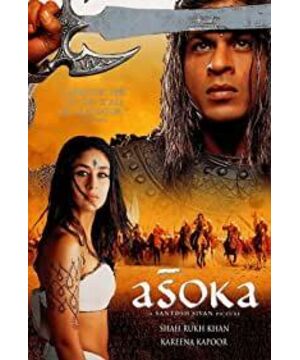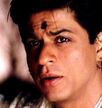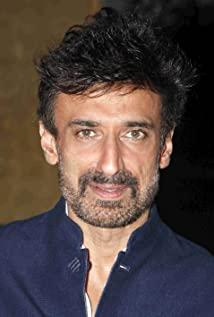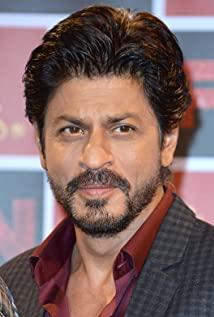——From the modern transformation of the Indian film "Ashoka",
Huntington has this view in the theory of the clash of civilizations: "The global political pattern is changing with cultural and Civilizations are re-forming boundaries and present complex trends: for the first time in history there is a multipolar and multicivilizational global politics; the relative power of different civilizations and their leaders or core states are undergoing major shifts, civilizations The balance of power between civilizations can be significantly affected; in general, countries with different cultures are most likely to be alienated and indifferent, or highly hostile, while civilizations are more likely to have competitive coexistence, i.e. cold war and cold peace; ethnic conflict will prevail, while cultures and civilizations separate people, cultural similarities bring people together and foster mutual trust and cooperation, which helps to weaken or eliminate estrangement.
After the Cold War, the world is gradually forming a situation of multi-polar coexistence and development, so the competition of cultural soft power is becoming more and more fierce among countries, so I agree with him. "For the first time in history, multi-polar harmony has appeared. Multi-civilizational global politics. But I agree more with what Fowler said: "The worldwide conflict caused by the unequal distribution of power, wealth, and influence, and the disrespect of the small by the big countries, is far greater than the clash of civilizations between Christianity, Confucianism, and Islam. Culture is a vehicle for expressing conflict, not a cause. "
Therefore, under the influence of globalization, when the western developed countries are relatively dominant in politics, economy, military, etc., it will more or less affect the way the eastern nations view and evaluate their own culture, and make the West as much as possible. The greatest efforts and sacrifices made in understanding oriental culture have even entered a vicious circle: "trying to interpret or imitate a kind of orient in the eyes of westerners. "The following is a detailed analysis and discussion of the Indian film "Ashoka".
"Ashoka" is known as a very successful commercial film in recent years that combines historical plot and commercial elements. Whether it is from the initial publicity (the false claim of winning the Oscar for Best Foreign Language Film, which is actually a fake), to the production of the film and the gimmicks (epic aura, gorgeous scenes, big-name stars), Neither is what a successful commercial film demands. All of this is carried out in the direction of Hollywood's operation mode, which is understandable in business, but the specific plot of the story reflects the suspicion of Eastern civilization and the yearning and pursuit of Western civilization. He tried his best to promote his "unconfident and self-confident" culture to the West.
To put it simply, this is a romance movie in an epic coat. It has the ancient and bold theme of Ashoka, but it does not bring people a serious and grand historical film, but dilutes the historical plot or even fabricates and distorts history. The plot highlights the protagonist's love story and the description of the process of his inner change. This may seem contradictory, but it is also the only way for the East to learn from Western films. Imitation will always have shortcomings and amusing, just like the ancient Chinese "Dong Shi Xiao frown". The director not only wants to make a movie with the same boldness and grand scenes as "Troy", but also wants to have some love as a gimmick to attract the audience, but he can't achieve the natural fusion of love and history like "Braveheart". Together, the aforementioned situation arises, "a romance movie in epic garb.
Then he wanted to learn another feature of Western movies to explore human nature, and to explore how this man who has the title of black and white Ashoka in history has changed, so he designed a series of love, a series of murders, and a series of contradictions. I try to find out how Ashoka changed from the inside and heart of the individual. For example, the paragraph about the sword that his grandfather said to him at the beginning, like the specious and suggestive words that a wandering monk said to him, in fact, it was a hint or revelation that King Ashoka would eventually go to Buddhism. This change. On the other hand, his brother's cruelty to him, the death of his lover he mistakenly thought, the murder of his mother, and a series of tragedies, I think it was the director's intentional arrangement that made him bloodthirsty and murderous. Internal reasons. The director tries to discover the reason for his change from the hearts of people from these fictions that have no historical basis. This itself has lost its epic charm, and it is inappropriate and real in some bridges, such as his brother's single, arguably silly assassination. There is also the downplayed description of some important historical developments, such as the fierceness and cruelty of the internal struggle in the palace where the father is dying. This all makes the director's efforts seem less powerful. I think all of this is due to the director's simple desire to interpret an oriental great man from a Western perspective, and to simply apply some Western stereotypes to explore the connotation of the East. (The new generation of Indian directors has a background of studying in the West. They try to deconstruct the traditional impression of Indian films and try to build a new Indian film model). But the fact proves that this kind of simple imitation and application and abandoning the inherent things cannot lead to a path unique to it.
Another notable feature is that the style of heroism shown in it has an obvious Western style. From the love at first sight between the hero and the beauties, to the hero fighting against ten for the sake of the beauties, from the hero obeying his father's life and winning in a row, to the hero using cruel means to gain the throne, all of them show the ways and means of Western heroism movies. It can be said that this great king of the East has completely set foot on the deep imprint of the West.
All this is actually a kind of skepticism about the value of one's own civilization. Under the influence of globalization, Western commodity culture has quickly swept over, and the operation mode of Hollywood blockbusters has deeply attracted the hearts of local directors. Therefore, they began to doubt their own inherent mode and began to think about Western culture from the perspective of Western thinking. Local films are interpreted and tried. This may also explain the fact that in some cases, it is not that the own civilization has a huge decline and irreparability, but the invasion of foreign political, economic and cultural, so that it does not have the original tension and cohesion, so it is suspected and rejected. "abandon".
The focus of this film is to try to imitate or interpret the appearance of Indians in the eyes of Westerners. The most obvious of which is the rendering of the singing and dancing scenes, the most different from the previous ones is only the exquisiteness of the picture and the grand aesthetics of the aura. This song and dance scene seems to have become the most Indian characteristic of Western people's thinking (at the same time, it also has its own cultural affirmation). Singing while dancing, with a strong Indian-flavored tune, it is easy to make people know that this is India, and this is Indian cinema. The second is the film's description of Buddhism. A wise man dressed in white comes from afar, enlightening the protagonist on the path of enlightenment in a sentence or two. In fact, in the epic, King Ashoka was finally enlightened after many long talks with eminent monks. In the film, in order to imitate or interpret the oriental monks in the eyes of Westerners, the ordinary monks in the eyes of Westerners are depicted as "a detached and refined appearance, dressed in ragged clothes, and one or two paradoxical words, so they changed One person. The third is the three silly soldiers. From time to time, they come up with some hilarious jokes to adjust the mood and the rhythm of the movie. In the eyes of Westerners, some of the humour of Easterners is also what they are keen on, so this The movie also appropriately expresses this westerner's point of view.
Let's talk about the singing and dancing scenes in the movie. On the one hand, it is the director trying to imitate and interpret the Eastern civilization in the eyes of Westerners. A kind of persistence in civilization, a kind of wanting to show the best part of one's own civilization to everyone, and at the same time can improve the self-confidence of one's own civilization. Deliberately interpreting a song and dance scene with a Western label, which leads to the refinement, grandeur and refinement of the scene.
The description of the monk is completely unconfident. It is completely portrayed according to the image of the monk in the eyes of Westerners, and it is impossible to describe this character vividly and naturally.
The above analysis may reflect a contradictory psychology. On the one hand, it is skeptical about its own culture and wants to put a label that others recognize on its own culture. Want to confidently express and promote your own culture.
This series of contradictions and changes, breaking through and clinging to the siege, are attributed to the internal reason - the huge impact of globalization on the East in all aspects of politics, economy, culture and so on. The foreign political, economic and other superstructures of the West will inevitably bring a huge impact on the cultural and ideological level of the Eastern people's hearts, and they will begin to doubt and be less confident in themselves, and begin to imitate the cultural ideas that are "better" than themselves. At the same time, he is not satisfied with the "backwardness" of his own culture. He wants to express his own things to the West, but suffers from the disadvantage of political economy and lacks the right to speak. looks like.
This is the bad side of the huge impact that globalization has brought to us, but on the other hand, globalization has also brought us a new way of thinking, both in terms of political economy and cultural and ideological levels. To give a simple example, it is like the early Indian movie "Caravan", which is relatively popular, is completely oriental movie - the beautiful and witty heroine, through her own efforts and the help of a kind and capable hero, finally defeated the The story of a villain with a powerful human face and a beast heart. When it comes to "Ashoka", there is a new model and development, which has been discussed in the previous article.
All of these analyses are aimed at explaining the truth that in the process of globalization, we should have such an attitude towards foreign cultures and our own culture: we must have a vision for our own cultural accumulation and development, and we must have a positive attitude towards others The information must be constantly explored, and on the basis of a deep understanding and application of the nationality, it is necessary to accept foreign cultures without being humble or arrogant, and to absorb and integrate them. Like ancient Taoism, Confucianism, the intersection and exchange of Buddhism is a good example. Although we have inequality in terms of politics, economy and culture, we are all equal in the face of culture. What we want to achieve is the common prosperity and development of the world's culture!
View more about Ashoka the Great reviews











